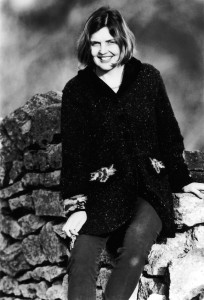 Maureen Freely, who teaches creative writing at the University of Warwick, is a published novelist, journalist and translator of Nobelwinning writer Orhan Pamuk’s works. Youth Inc talks to her about writing, literature, teaching Indian students and jobs in the arts
Maureen Freely, who teaches creative writing at the University of Warwick, is a published novelist, journalist and translator of Nobelwinning writer Orhan Pamuk’s works. Youth Inc talks to her about writing, literature, teaching Indian students and jobs in the arts
Q. What is the experience of teaching creative writing like?
I have taught creative writing for more than 25 years now and no two creative writing classes are alike. But my ideal class is one that is very diverse in age and background, so much so that on the first day, I cannot begin to imagine what my new students have to offer and what they might teach me by the end of the year. But I know that I want to do everything in my power to coax each of them to write at least one thing that no one else could have written – and is a joy to read.
Q. How do you teach something that is so dependent on individual taste?
There are no rules that apply to all writing, not unless you want all writing to be the same. But it helps to gain a precise understanding of literary technique. It is also important to engage with the mystery of creating something out of nothing by working with the student’s early drafts, which will (like my own early drafts) be sketchy and unbalanced. The trick is to pay most attention to the interesting
bits and imagine how the student might develop them. In a typical writing workshop [peer critique class], students investigate this mystery as a group.
They learn just as much from critiquing classmates’ work as they do from having their own work discussed. It also helps them to understand that what works for some readers does not work for others.
Q. Can creative writing really be ‘taught’?
It cannot be taught in the strictest sense of the word, but all writers – new and old – need editors, mentors, and critical friends who are themselves writers. They also need to engage with contemporary writing in all its variety. The best writing is always in conversation with those who have come before and the most exciting conversations are amongst equals. The wonderful thing about reading contemporary fiction is that there is no canon, so we readers can decide if we like something. We don’t have to wait for the great and the good for their seal of approval. With the help of new technologies, we can let others know what we like and why, creating our own communities of readers. Some of the best work I have read recently is work produced by not-yet-published student writers.
Q. Is every new batch of students an improvement on the previous one?
In the arts we don’t look for ‘improvement’ that can be measured. Rather, we try to build on our ideas about writing and the contemporary writing scene so that we can keep learning too. My central aim is to encourage students to take themselves seriously as writers and as active members of the literary community. The publishing world has changed a great deal, so there are opportunities for literary entrepreneurs with energy, sophistication and good ideas. It is a pleasure to watch students come up wih those ideas and run with them.
Q. How do Indian students compare to other students, in your opinion?
The most delightful thing is that no two students from India have been alike. If I think back on the Indian students I have had the privilege to work with over the past five years or so, I can think of several who number amongst the best and most interesting students I have ever taught.
Q. People belive that an arts degree does not equip one with skills needed in the real world. Comments?
Next time someone tells you that, think of saying this: in Britain, cultural industries account for a higher percentage of the GDP than the financial sector. Indian cultural industries must be booming too. I imagine there are many opportunities for cultural entrepreneurs.
Q. Give us five must-read books for a prospective creative writing student.
I always prefer to give tailored reading lists to my students. I want to know what they have read so far. When I read their early drafts I think of other books they might find interesting. I almost never recommend books on how to write! Let me recommend just one very beautiful and eccentric book that addresses the question of how the arts and the sciences might survive in the commercial world: The Gift by Lewis Hyde. It is very dense, but the ideas are light and bright and wonderfully cheering.
Volume 2 Issue 6


























